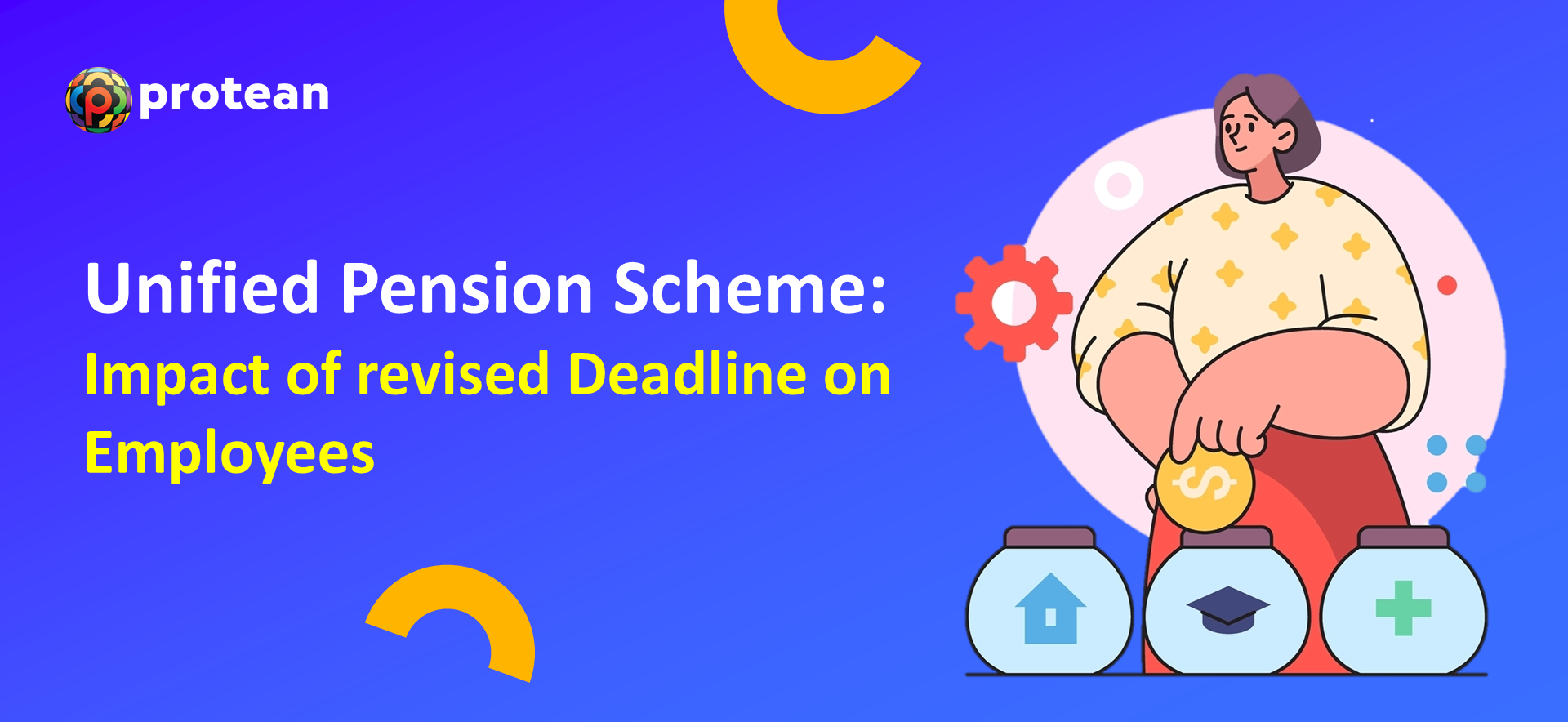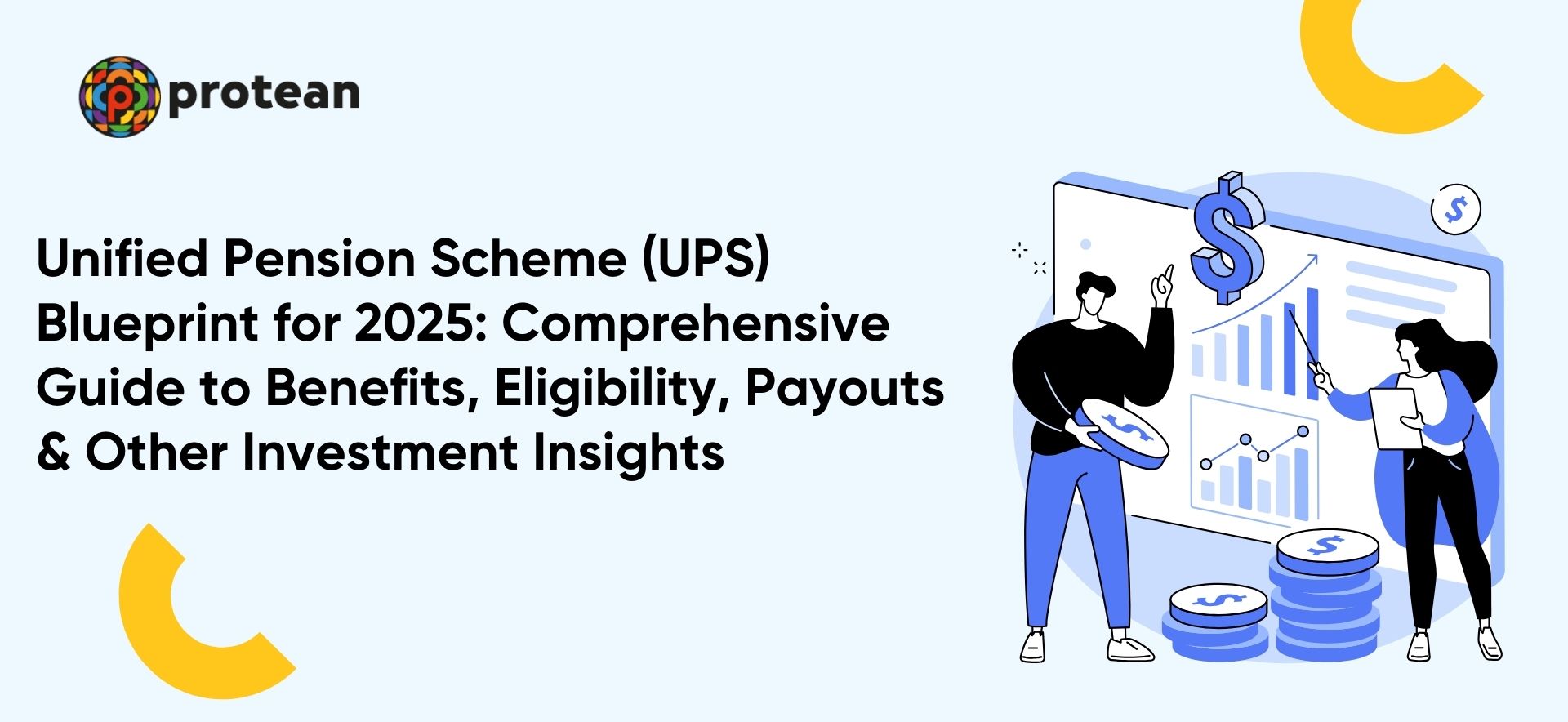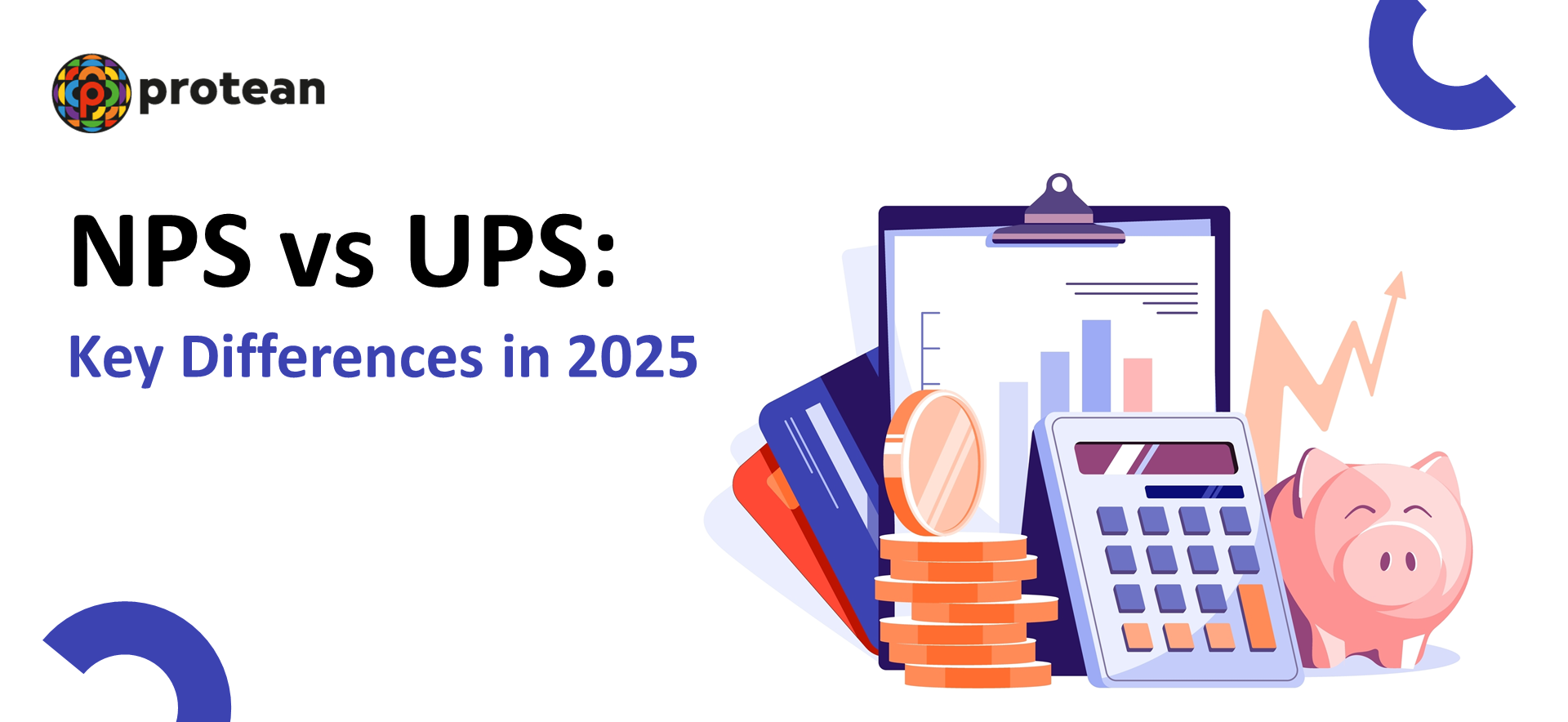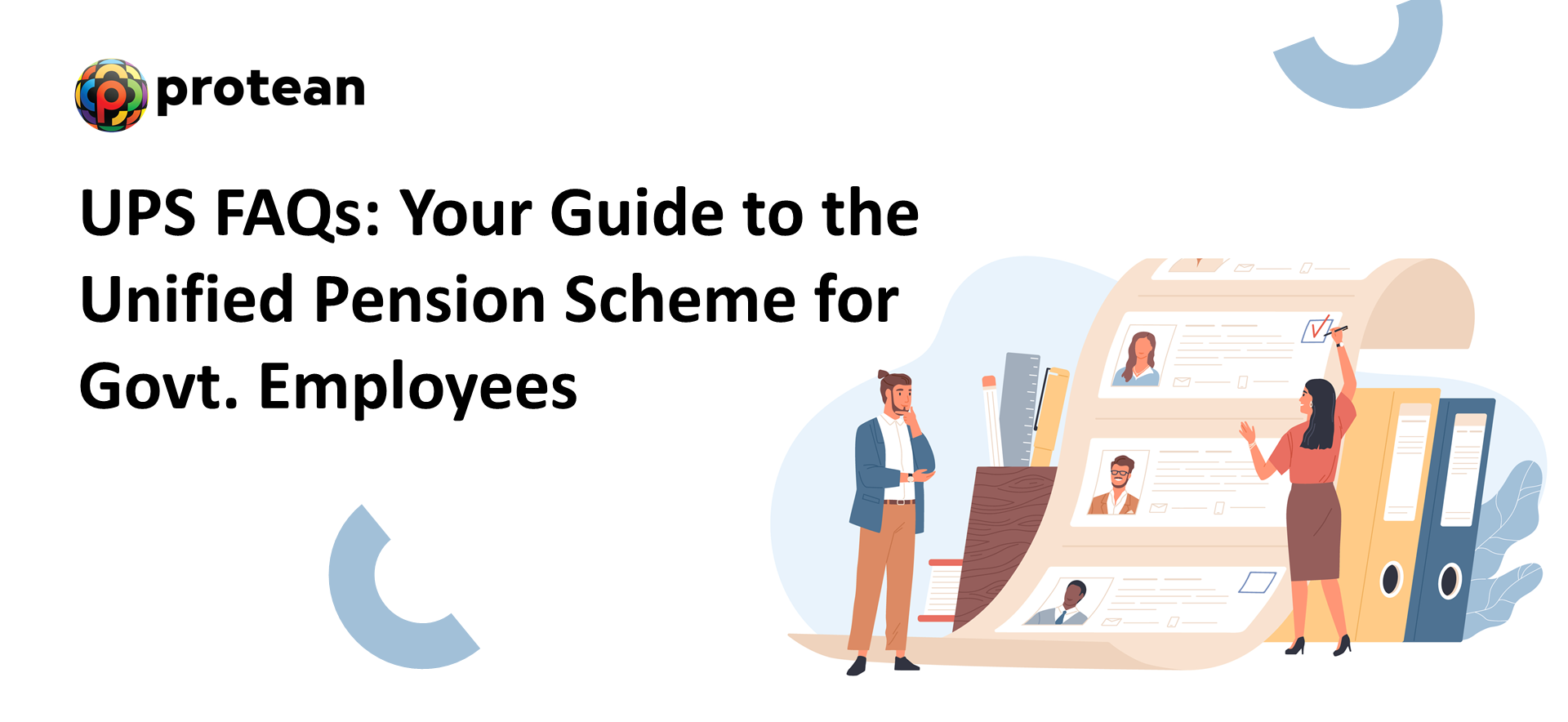Blogs
How does the revised deadline of Unified Pension Scheme affect central employee's plans
The implementation of the Unified Pension Scheme (UPS) marks a significant shift in retirement planning for central government employees in India. The government recently extended the deadline to choose Unified Pension Scheme until November 30, 2025, providing employees a crucial window to assess their pension choices and make well-considered decisions.
What is Unified Pension Scheme?
The Unified Pension Scheme is a new, government-backed retirement plan that provides a guaranteed pension. It launched on April 1, 2025, specifically as an alternative for central government employees who are currently part of the National Pension System. The Unified Pension Scheme aims to offer a more predictable and stable income after retirement, addressing concerns about the variable returns of market-linked schemes.
Key Features of Unified Pension Scheme 2025
The Unified Pension Scheme (UPS) 2025 offers key features to provide greater financial security for employees:
- Financial Security: A minimum monthly pension of ₹10,000 is guaranteed for eligible employees, offering a reliable income stream.
- Boosted Retirement Savings: The government will contribute an amount equal to 10% of the employee's basic pay and dearness allowance, alongside an extra allocation to fund the assured pension.
- Added Gratuity Provision: For the first time, gratuity benefits are extended to those who select the UPS.
- One-Time Choice: Opting into this scheme is a final decision; employees cannot revert to previous pension arrangements.
Understanding the Deadline Extension
In response to appeals from a wide range of stakeholders—specifically staff unions, retiree associations, and legal heirs—the government has granted a three-month extension to the original deadline. This allows qualifying central government employees, retirees, and the legally recognized spouses of deceased retirees further time to consider and exercise their options. The initial deadline of June 30, 2025, followed by September 30, 2025, and has now been set to November 30, 2025. This decision clearly reflects the understanding that such an important choice requires sufficient time for individuals to gain full clarity and seek necessary counseling for their future well-being.
Who Is Eligible to Benefit from the Extension?
This extension is applicable to several groups:
- Current Central Government Employees: This includes individuals actively employed on or after April 1, 2025, who are part of the National Pension System (NPS).
- Retired Employees: Eligibility extends to those who concluded their service on or before March 31, 2025. This specifically covers individuals with a minimum of ten years of service or those who retired under Fundamental Rule 56(j) (excluding cases of punitive retirement).
- Lawfully Married Spouses: Spouses of eligible deceased retirees are included, provided the retiree did not make their choice before their passing.
Important Note: New employees hired after April 1, 2025, are required to make their option selection within 30 days of their start date.
UPS vs NPS: Key Differences for Employees
| Feature | Unified Pension Scheme (UPS) | National Pension System (NPS) |
| Payout | Assured, fixed monthly pension (min Rs. 10,000) | Market-linked, variable |
| Government Contribution | 10% of basic + DA + extra for assured payout | For central government employees, the government currently contributes 14% of basic plus DA, while employees contribute 10% |
| Gratuity Benefit | Yes | No |
| Pension Calculation | 50% of average 12-month basic pay (25 year’s service) | Based on accumulated market returns |
| Switching Option | Irrevocable, deadline-based | Default option if UPS not chosen |
| Flexibility | Low (choice is final) | Higher (early exit, partial withdrawal) |
What Happens If Employees Miss the Deadline?
If central government employees don't submit a choice by November 30, 2025, the following will happen:
- NPS Becomes the Default: Employees will automatically remain under the National Pension System.
- Decision is Final: Any selection made (or defaulted to) cannot be reversed later.
- Forfeited Advantages: Not making a timely switch means losing out on the guaranteed pension, gratuity, and the stability of a fixed income after retirement.
Impact of the Extended Deadline for Central Government Employees
The revised deadline brings several significant benefits for central government employees considering their pension options:
- More Time to Choose: Employees and their families now have an extra three months. This gives them a better chance to look at all the details, get advice, and pick the pension plan that's truly best for their future.
- Better Information & Support: Staff can now join special sessions to learn more. They can get answers about how much they'll get paid, any extra benefits like gratuity, tax effects, and how the new pension plan (Unified Pension Scheme) fits their retirement plans.
- Fewer Future Problems: Having more time means people are less likely to make a quick, bad decision. This helps prevent arguments or complaints later on about who gets what pension benefits.
- Helps Spouses and Past Retirees: This longer period makes sure that spouses of employees who passed away, and even those who retired earlier but might have missed the news or had paperwork issues, get one last chance to join the scheme.
Conclusion
The extension of the Unified Pension Scheme deadline to November 30, 2025, empowers central government employees with crucial time to analyze, decide, and secure their retirement. Eligible central government employees must use this window wisely: assess the financial security of a fixed pension versus the variability of NPS, consult with experts, and ensure all paperwork is completed before the deadline.
A well-informed choice today promises peace of mind and a secure tomorrow.






